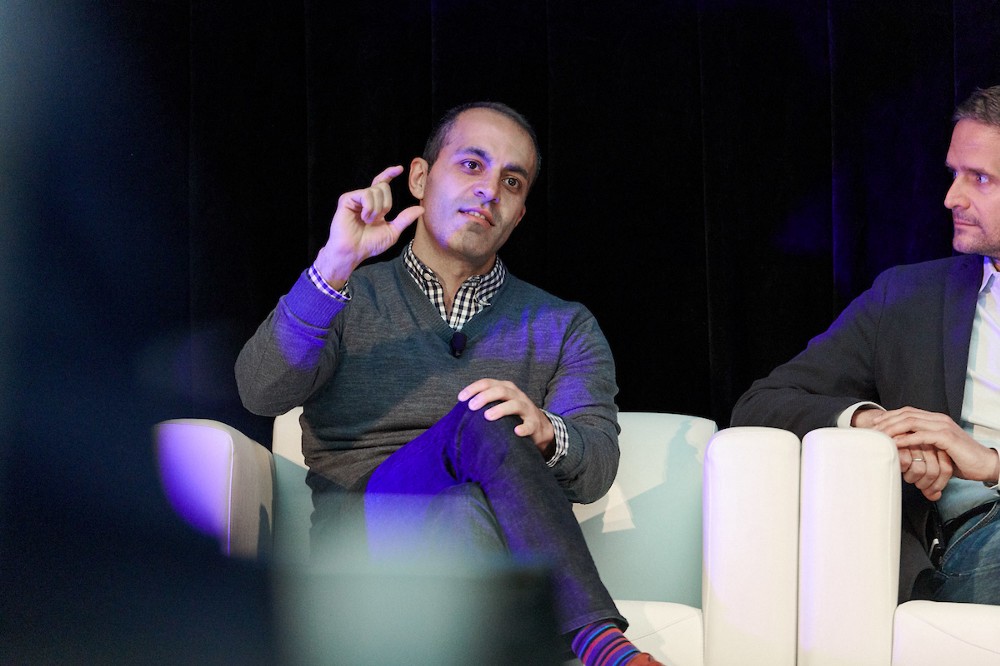Silcon Valley tech-genius Ali Ghodsi has soared to new heights in his career. From humble origins fleeing war-torn Tehran in the 1980s, to CEO of Databricks, Ghodsi’s rise has been meteoric.
Now valued at $38 billion, Databricks harnesses the power of AI to revolutionize the way we store and analyze data. It is now used by over 5000 organizations worldwide, including 40% of Fortune 500.
Ghodsi is the mastermind behind the data lakehouse concept: combining data warehouses and data lakes. “I think the lakehouse will be the way of the future” he says. Amazon Web Services (AWS), CapitalG, and Microsoft all agree with a recent $1.6 billion funding injection.
Ali Ghodsi: professor turned successful entrepreneur
Ghodsi remembers hearing the bombs fall on his native Tehran during the Iran-Iraq war of the 1980s. Such an experience has no doubt contributed to his success: “One day, everything can be great; the next, everything can have collapsed. It helps you stay calm in a crisis.”
After moving to Sweden with his family, Ghodsi began his education in kindergarten. He then received his PhD from KTH Royal Institute of Technology, where he acted as associate professor from 2008-2009. Ghodsi also co-founded Peerialism AB, a Stockholm-based company developing peer-to-peer systems to transport and store data on the Internet.
In 2009, he joined UC Berkley as a visiting scholar. During this time his appetite for innovation helped launch the Apache Mesos and Apache Spark projects. By 2013, now an expert and pioneer in his field, it was time to start his own company. So he co-founded Databricks, becoming CEO of the data and AI company in 2016.
Ali Ghodsi the risk taker
Ghodsi sees a connection between immigrant-origins and the risk-taking culture of Silicon Valley in which he thrives.
“The United States was created by refugees over the past 300 years or so. In Silicon Valley, you do find a lot of people who had to leave their home countries. And as a result, the country as a whole is like a startup, compared to where I grew up in Sweden. And so, in the Valley, you find a lot of high-risk-taking people.” he says.
Ghodsi is by no means the only Iranian creating a storm in the Valley. Since the revolution of 1979, many have been turning up, as he remarks: ‘in Silicon Valley, there is a small contingent of entrepreneurs and executives, like the CEO of Uber [Dara Khosrowshahi] or Omid [Kordestani], one of the key guys behind Google. And there’s more and more that you see.”
While he values the opportunities offered by America, Ghodsi gives credit to the Swedish social democracy that raised him. “In Sweden, for a refugee family, it was fantastic for us. We were given the average that every person should have. I was able to go to college and get a PhD [from the KTH Royal Institute of Technology, in computer science]. . . It’s harder to accomplish that in the US.” he said.
Ali Ghodsi’s Databricks breaks new ground
Ghodsi’s Databricks now employs 2300 people. Currently, it is focused on pushing the new concept of the ‘Data lakehouse’. This innovation combines the data management provided by data warehouses with the low cost flexibility of data lakes. Ghodsi himself describes it as a ‘technological breakthrough’. For him, machine learning and AI are the future: ‘Most of the brilliant minds in the world are working on machine learning’ he says.
Ghodsi is surely one of them. The latest round of a whopping $1.6 billion in funding will go towards helping companies accelerate the adoption of the lakehouse architecture. Databricks customers will be able to harness the power of AI to support their data and analytics in a single, unified location.
Check out the highly innovative platform here to get a taste of the future of data technology.



